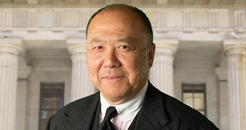 The effect of purpose at work
The effect of purpose at work
From a blog by The Gospel Coalition
Ed Moy, who when young was an ordained pastor for college, international students, and marketplace ministries in Milwaukee, USA, was the 38th Director of the US Mint from 2006 to 2011.
On appointment, he found that employee morale was incredibly low. The Best Places to Work in US Federal Government ranked it number 211 out of 217 Federal agencies. No one wanted to work there, and Ed wanted to change that.
It wouldn’t be easy. Since the mission of the Mint is to make and circulate U.S. coins, many of its employees work in factories and it’s the same work every day, rarely engaging human creativity or flexibility. To make such work enjoyable would be an uphill battle.
Ed’s first idea to turn things around was to solicit feedback at employee town halls. In the first year, after receiving more than 100 ideas, he implemented the top five. He thought addressing their felt needs would improve employee satisfaction. But the Mint rose just one spot in the rankings—from 211 to 210.
The next year he continued down the list, expanding telecommuting and making employee bonuses much fairer. Maybe, he thought, financial incentives could improve employee satisfaction. But in the end, the Mint lost its slight gain—going from 210 back to 211.
Something wasn’t right. Ed needed a new perspective.
As a Christian, Ed went to see what the Scriptures taught about God and his work. In the creation account, he realized God not only worked but also found satisfaction in it. “At the end of every day, God gave himself a performance review: ‘It is good,’” he noticed. Made in God’s image, Ed reasoned, human beings were made to work and to find satisfaction in it, too.
So he began to think about the importance of coins to American culture. They are not just used to buy things; they are used to make wishes at fountains. They are tossed at football games. They bear testimony to history. They serve as ambassadors to foreign nations.
This high vision led to a rebranding campaign. Ed crafted a message—“Connecting America through Coins”—and sought to imbue each position in the Mint with it. Since everyone needed to see how their work connected to this larger narrative, Ed and his team reconfigured performance evaluations. Quality control, for example, wasn’t just about checking for imperfections; it was about not slowing down commerce by creating shoddy coins, or about sending the message that America values excellent work.
Studies show that trying to find deep meaning in our work show that “those who can connect their work to a higher purpose—whether they are a janitor or a banker—tend to be more satisfied with their jobs, put in longer hours, and rack up fewer absences.”
Christians have such a narrative and purpose. We know that Jesus became incarnate, taking on the daily ordinariness of humanity and enduring the cross. Paul, too, was beaten, lashed, and shipwrecked (2 Cor. 11:16–33). Yet these men had a greater narrative in mind than their own personal comfort. They endured because they connected their work to the ultimate narrative—that God sent Jesus to his people to reconcile them to God.
And our narrative includes even more than evangelism, more than spreading the good news of God’s reconciling message. As disciples, we’re called to live our whole lives—from family to church to volunteer activities to “whatever you do” before the face of God and for his glory (Col. 3:17; cf. 1 Cor. 10:31).
And that includes our vocations. Our ordinary, everyday work points to that larger narrative. What does this look like in particular vocations? Mechanics diagnose and fix cars to create a safe environment for transportation. Information technology workers build networks to help researchers find cures for deadly diseases. Accountants crunch numbers to ensure honest and fair dealings. Grocery store clerks stock shelves with products to help people nourish themselves and their families.
Understanding our work in its larger context matters. When we see our jobs merely as means to our pay, we miss the bigger picture of what God is doing in the world. We focus on the drudgery and the toil. But if we expand our vision to see how our everyday work—even when it seems mundane—contributes to human flourishing and furthers the public good, then we’re more likely to do good work and enjoy doing it, too. We’re more likely to reflect on it, despite its thorns and thistles, and say, “It is good.”
When Ed connected the everyday work of the U.S. Mint to a larger narrative—“Connecting America through Coins”—he experienced a dramatic turnaround in employee morale. After three years of implementing the new narrative across the board at every level, the Mint rose in the rankings—from 211 to 58.
It was the biggest jump in the history of the survey for any Federal agency on the list.
And it wasn’t just a fancy, slick marketing campaign. It was connecting a deep part of being meaning-makers—of who God made us to be—to the larger narrative of working for the public good, loving our neighbors, and contributing to human flourishing. And people responded by enjoying their work.
Connect your work and that of your colleagues to a higher purpose today.
Retweet about this article:
From a blog by The Gospel Coalition, 03/01/2017